 Today in the church it’s Trinity Sunday, or Heresy Sunday as some theologians call it because of all the bad sermons that try to explain this idea of a Triune God. As Martin Luther once warned, “To try to deny the Trinity endangers your salvation, but to try to comprehend the Trinity endangers your sanity.” Considered to be one of the most important teachings in Christian faith, the doctrine of the Trinity is also one of the most difficult to understand. It suggests that God is most perfectly revealed as Three, but is really OneIt’s a mathematical conundrum that had our Jewish ancestors confused and writing it off as a bunch of gobbledygook. Anyone who has spent a lot of time in church has probably seen a minister explain of the Trinity using an egg. It has the shell, the yoke, and that clear gooey stuff; three parts yet one egg. Now think about making an Angel Food cake, which requires using only egg whites. The shell and yoke get tossed out. The problem with this illustration is that it’s impossible to separate God from God. A better example is water. It can be a liquid, solid, and steam. All unique, yet all the same: H2O. But like doctrine, water it can be polluted…so there’s that. Last year, Pope Francis used a fidget spinner as an example. “As the spinner spins faster, the three arms seem to become a single disc, yet they maintain their individuality.” He went on to explain that just as an improperly balanced spinner won’t work very well, neither will our faith if our view of God is improperly balanced. Today I’m not going to try to explain the Trinity, which would be crazy. Instead I’d like to look at how the three work together in us to keep us properly balance with God. While I thought about this question, my daily bible verse popped up in my notifications feed. It’s the one we read today. Like a divine message, it reveals a lot about the trinity. For the grace of God has appeared, bringing salvation to all, training us to renounce impiety and worldly passions, and in the present age to live lives that are self-controlled, upright, and godly." Titus 2:11-12 Read Paul’s passage again and you will notice that nowhere in these two short verses is the word Trinity mentioned. That’s because the word is nowhere in the bible. But that doesn’t mean the Trinity isn’t there…in a different form…in a different word. That word is Grace. Right up there with life itself, grace is God’s greatest gift to the world. More than just forgiveness or a get out of jail free card, grace is both an invitation to be in the presence of God… and a call to be the presence of God in all that we do. Paul writes, “The grace of God has appeared.” But this didn’t just happen randomly. Think about it, in order to receive a gift, the gift must first be given, right? As logic would suggest, for something to appear it must first belong to someone or something. Everything has a starting point. The chicken had the egg. Or the egg had the chicken. The same way a baby chick is born, the grace of God comes to life in God – the Divine Parent – the first part of the Trinity. God initiated grace because lets face it, we’d be doomed without it. To quote Hannah Montana “Everybody makes mistakes. Everyone has those days.” Our divine parent knows that “nobody’s perfect, and we got to work it, again and again until we get it right.” Grace is God’s way of saying, “I get you. I love you. And I’m rooting for you to succeed. But please stop singing Hannah Montana!” Grace originates from God’s heart. And just as it is with God’s love this divine grace knows no boundaries. It is inclusive, given to all who want it – not because we earn it, but because God knows us and knows we need it. I like the Message’s translation of this passage. It says, “God’s readiness to give and forgive is now public. Salvation’s available for everyone!” Grace shows how God is for us, and wants nothing from us… but us… even if we make mistakes from time to time. Paul tells Titus, “The grace of God has appeared bringing salvation for all people.” The grace that first appeared in God’s heart comes to us in the fullness of God’s love who is Jesus, the Savior, the second part of the Trinity. Christians profess Jesus as Lord. And describe him as a shepherd, a rock, a stronghold and refuge, a brother and a friend. In the Bible he is called the Christ, the Messiah, the Son of Man, the Son of God, the Word of God, and Emmanuel, which means God with us. There are many ways to speak of Jesus but his purpose remains singular… to bring salvation to all of God’s children. Jesus is the bearer of God’s grace that saves us from ourselves. Love is what we were created from, and love is what we were made for. Just as God shared Jesus with us, so too are we to share this gift with others. Through Jesus God’s love flows to us, and through us, so that God is with us always. Paul wrote, “The grace of God has appeared, bringing salvation for all people, training us in the present age to live lives that are upright, and godly.” As if just getting by in today’s world isn’t hard enough that now we have to be godly? What happen to this idea of “nobodies perfect?” I’m not so sure God is asking us for perfection but for practicing our faith daily. God gives us grace because living in grace and thriving in love takes practice. Like Hannah Montana, “we got to work it, again and again until we get it right?” The good news is when we accept the gift of Christ Jesus we also receive the Holy Spirit, the third and final part of the trinity. As we discovered last week for Pentecost, the Holy Spirit comes to us so God can be as close to us as our own breath. The Spirit is our advocate that fights for us, and lifts us up when life knocks us down. Like a personal trainer or life coach, the Spirit keeps us focused on the will of God and trains us to live in Christlikeness. From God’s mouth to our hearts, the Spirit swirls around creation uniting us to be in kinship with God and with each others. The Holy Spirit is our constant reminder that God is in us – revealing to us the way of Jesus that leads to our salvation. The Creator, the Savior, and the Sustainer: Three unique parts of One God, working together to unite the world in God’s love. I fear I have overly simplified the Trinity. And it’s possible I might be called a heretic for doing so. It wouldn’t be the first time. And I doubt it will be the last. Thankfully, God is gracious and forgiving. So before I get burned at the sake I will leave you with an illustration of the Trinity that has been passed down by the early church fathers. They best described this complex idea as a simple circular dance where all three unique elements of God hold hands and move together to the rhythm of one heartbeat. A lot like the fidget spinner idea, the three dance in sync and in perfect balance – yet they maintain their individuality. This Divine Dance reminds us that no matter how we define the mystery of God…it will always be a holy community held together by the love of God. We too are created in the image of a loving community. Like one body, made up of different parts, we find our balance being in God’s love and being God’s love to one another. The Triune God invites you to be in the center of this sacred dance, and welcomes all of us into this heavenly community, naming us children, sons and daughters, heirs to the blessings and grace of Christ Jesus. In this Spirit we are able to dwell in the gracious love of the God who is for us, the God who is with us, and the God who is in us. Now and forever, Amen.
0 Comments
“When the day of Pentecost had come, they were all together in one place. And suddenly from heaven there came a sound like the rush of a violent wind and it filled the entire house where they were sitting.” 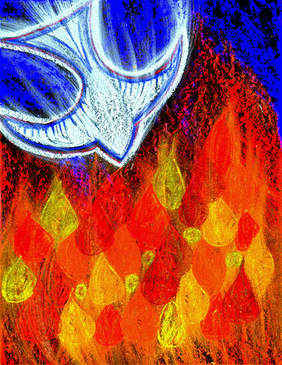 In my life, I’ve experienced hurricanes, tropical storms, tornados, and the strong Santa Ana winds that so often rip across California. I can say that I have a pretty good idea of the power a strong wind can generate. But yet it’s hard for me to wrap my head around this strange rush of violent wind that hit ancient Jerusalem on Pentecost. Barbara Brown Taylor describes it by saying, “Before any of them could defend themselves, that mighty wind had blown through the entire house, striking sparks that burst into flames above their heads, and everyone of them was filled to the gills with God’s breath.” In one single, divine breath the church was born. It’s not unusual to speak about the Holy Spirit as the breath of God. The Greek word for "spirit" is pneuma, the same word for "breath." And in Hebrew the word is “ruach,” which has many meanings; including “wind, breath, and spirit.” Even though breathing is essential to life, it’s funny how we only seem to think about it when we run out of it. Wind is another story. It tussles you and slaps you, screams and howls at you. It can bite you, break you, and even blast you away. Wind, as you can imagine, can be hard to ignore. At a very young age, my dad had taught me how to sail. Part of this training was learning how to read the wind and use it efficiently. By the time I was Sean’s age, I was navigating the tropical waters of Gulf of Mexico all on my own. To think only thing my parents worried about was whether or not I was wearing sunscreen. Around this time in my life my parents bought a used catamaran, a sixteen-foot Hobie Cat that I would sail the way most kids rode their bikes; daily, excitedly, and recklessly. I remember one quiet morning setting sail on my own. The air was already warm and still. As I skimmed the placid water, I trimmed the sails and manipulated the rudders to capture what little wind there was. With a gentle glide my mind began drifting further and further away from shore. Life was good in that moment. I was completely relaxed when I was caught completely off-guard by a sudden gust of wind came out of nowhere. It was like an invisible ghost blowing out the candles on a birthday cake. My sails rapidly filled with such intensity that it caused my sailboat to flip over. Since I didn’t weight enough to right the boat, I sat and floated, wondering where that wind had come from and where it was going. Wind. Breath. Spirit. Its power is the same in any language. Pentecost is a reminder of how God’s Spirit can catch us off guard, and turn our world sideways. It might leave us feeling adrift, but it will never abandon us in our situation. But whenever I feel the wind blowing through my hair, I am at peace knowing God is always with me, sometimes closer than I like to believe. Henri Nouwen taught, “In the Holy Spirit, God comes to be as close to us as our own breath.” This tells me that God’s Spirit is more intimate with us than we are with ourselves. “The Holy Spirit is the one who prays in us, and offers us the gifts of love, forgiveness, kindness, goodness, gentleness, peace, and joy. The Holy Spirit offers us the kind of life that death cannot destroy.” Here’s the thing that so many of us find puzzling. I can feel the wind kiss my cheeks. I can smell hints of coffee or mint on someone’s breath. So how do I know the Spirit is here, or if the Spirit is even real? I have come to believe that in the same way we see the leaves rustling on trees or our breath in the cold morning air, God’s Spirit is alive whenever we see acts of love and kindness in the world. This is what it means to be ‘church’. Again Barbara Brown Taylor wrote, “The same Spirit of God that had entered Mary and given birth to Jesus, has entered those who believed so that God could be born again.” In that room in ancient Jerusalem, God wasn’t becoming incarnate in one body. Instead God breathed life into a universal body of believers who “receive the breath of life from their Lord and pass it on, using their own bodies to distribute the gift.” Pentecost is not just a one-time event any more than it is an annual birthday celebration. It is the very gift of life from God and it needs to be celebrated daily. Each breath we take in is our reminder of who we are as a church – the bearers of God’s Holy Spirit. And every breath we release must retain her calling: to proclaim the gospel of Jesus Christ in word and deed. For example, if we inhale God’s spirit of love and forgiveness then we ought to exhale God’s spirit of love and forgiveness; just as Jesus did from his first breath in Bethlehem to his final breath on the cross at Golgotha. Every day the breath of God is being sucked into the lungs of ordinary people like you and me…all for the sole purpose of empowering us to do extraordinary things – to inspire and execute acts of mercy, kindness, and justice throughout all of creation. It is in these actions we begin speak in a language that catches the world off guard, and draws people in to receive the love and grace being offered to them through Jesus Christ. The church, in whatever form it takes, must speak One language because each one inhales the same breath, and exhales the same responsibility. As Keri Day writes, “The Holy Spirit is a subtle power. It’s the secret force behind all beauty, truth, and goodness; every act of kindness and compassion; every wise insight and every noble decision.” To her point, when the church lives faithfully in the Spirit of God, “every need can be cared for and every painful circumstances can be met.” This is how one gentle breath can turn into a mighty wind that can move with such forcefulness that it catches the world by surprise, and tips it over towards the righteousness of God. Sitting on the pontoon of my capsized Hobie Cat, with my legs dangling in the deep, dark waters, I felt God’s breath move over my wet skin. It produced a chill within me that told me I was not alone, nor had been abandoned to the sea. God was with me. And I was with God, wrapped in a warm towel of God’s sundrenched presence. Before my parents could send out a search party for me, a rusty old fishing boat puttered over to help right me over. As I grabbed the tiller and trimmed the sails, I found just the right amount of wind, breath, and spirit to sail smoothly and safely home. Too often churches fear capsizing or running aground, but that doesn’t stop God from breathing in us all – and empowering us all – to be a living, breathing, thriving vessel of God’s redemptive grace in the world. As a gathered group of Jesus freaks, misfits, and bumbling disciples, and whatnots, let us breath freely and frequently, inhaling and exhaling God’s gift upon the world. Let us always be united as one body, with one Spirit, for the one purpose of speaking the universal language of the divine love. Amen. Works Cited Bartlett, David L., and Barbara Brown Taylor, eds. Feasting on the Word: Year B, Vol. 3. Louisville: Westminster John Knox, 2007. pp 2-6. Day, Keri. We Need A Pentecost. May 3, 2018. www.christiancentury.org/article/critical-essay/we-need-pentecost (accessed May 18, 2018). Nouwen, Henri. Bread for the Journey: A Day Book of Wisdom and Faith. New York: Harper Collins, 1997. Taylor, Barbar Brown. Home by Another Way. New York: Cowley, 1999.
When Sean was a little boy, he wanted to know who God’s mother was. I told him, “You are.” And as if that answer wasn’t a bit too esoteric for his 4-year old brain to comprehend, I made sure to baffle him further by quoting a 13th Century mystic, Meister Eckhart, who said, “We are all called to be mothers of God, for God is always needing to be born.” God needs mothers of all kinds. Young ones, old ones, tall ones, short ones, rich ones, poor ones, loud ones and shy ones, hoarders and neat freaks, free-spirited and conservative, strong or insecure, good or bad alike, God needs mothers. That is to say, God needs you and me. I am not suggesting that to qualify for this role, all women must be pregnant or that men need to become more like Kaitlin Jenner and less like Bruce. But I do believe God is calling us to give birth to a new kind of motherhood – one where our kinship isn’t based on matching DNA or something you might find on “23 and Me.” John’s gospel shed’s light on this idea. As his last act before dying, notice how Jesus remembered his mother. With his final breath looming, Jesus looked at his mom and said to her, “Woman here is your son.” And to the disciple whom he loved he said, “Here is your mother.” In this place of death, a new life was created. “And from that hour the disciple took her into his own home.” Widows and orphans became one. A new body was birthed. Just as God becomes flesh and bones in Jesus and lived among us, we too are we called to live incarnational, to put on the flesh of God’s love. Bearing the blessing of Christ to form a new community – one that supports and cares, and welcomes all people in need of a family to call their own. This incarnational community is the medium in which the Gospel comes alive. It’s an engine for peace, and fuel for justice. It is the healing balm for reconciliation and the kiss upon the wounds of the world. God needs mothers like you and me. So he sent Jesus to glean from an extraordinary pool of human talent, diverse opinions, and every imaginable experience there is so the Good News of God’s love and grace can fill the hearts and hands of every person. Jesus never said he wanted us to worship him, but to be astounding in the world like he was; changing and transforming our communities towards God’s will. Before his assassination, Martin Luther King reminded us that a church community is not a place we go to, but a place from which we go. From that cross, Jesus invites all his disciples to adopt one another and be a community that reflects God’s sustaining love, power and presence in the world. We – the very Body of Christ – are called to take on a flesh and spirit…and to become mothers and caretakers, nurturing love and kindness in a hurting world. The Greeks have a word, Theotokos, which means “God-Bearers.” It’s a title that’s often reserved for the Blessed Mother Mary. But if we dare to call ourselves Christians, then we must also be brave enough to bear God’s incarnate love. As part of the living body of Christ, each one of us is called to be a mother who carries in our body the very life of God. We must allow it to form and take shape within us, and be willing to carry God’s love safely into being. From conception, to birth and life, all the way through death and resurrection, Jesus shows us the way, empowering us with great responsibility to make the Kingdom of God come alive. Through him, the love of God becomes incarnate in us so the fullness of God’s glory, the mother of all love, can be revealed throughout all of creation and long into eternity. My only question for you is this: Will you carry this love to full term?
Joy is when you’re intoxicated with life... it’s a euphoria that you feel when you are connected to the Christ that lives within you.  This week on Facebook, I asked you all how do you find or define joy. And here’s a sample of what was submitted: It’s a “feeling of completeness.” It’s “An overwhelming sense of euphoria.” It’s "adventurous and fearless" and "full of happiness." Or as our Auntie Diane called it, “no strings attached happiness.” Another friend described it as “effortless, peaceful happiness.” Imagine being in a place in your life where joy is as natural and effortless as breathing. Sarah’s brother Charlie said “Joy is doing something that fills you up and guides you through your purpose in life.” For my friend Rich, that’s “watching people you love being happy and fulfilled.” I like to imagine this why God’s joy is so abundant and can’t be contained? I really love what Cheri poetically wrote, “Joy rumbles along underneath whatever is roaring above.” I’m never 100% sure about what rumbles through Cheri’s head, but I love her sense of assurance that suggests joy is always present wherever we rumble and bumble. My dearest friend Janice Bussing said it best when she wrote, “Joy is when you’re intoxicated with life... it’s a euphoria that you feel when you are connected to the Christ that lives within you.” Think about that for a moment: Joy begins with a connection to Christ that already abides inside you. Joy is Jesus. And Jesus is joy. To abide in him is an invitation to experience overwhelming sense of euphoria and share it with others. This is the fruit-bearing stuff. You might find joy reading a good book, listening to great music, or getting lost in a beautiful painting. Or you might be the kind of person who finds joy working hard and partying harder. As fun as all that can be, it only produces temporary joy. Eventually the bar closes, the record finishes, and emptiness returns. The joy Jesus is offering us is more; it’s everlasting. And all you have to do to receive it, Jesus said, is to “Love one another.” Joy is love. And Love is joy. Jesus said, “As the Father has loved me, so I have loved you.” Now the very same love Jesus received from God is offered to us if we want it. The joy Jesus is offering us is grounded in God’s love for us. God is love. And love is relational. So the first step to complete joy begins with a relationship with Jesus who wants to share God’s love with you. And where God’s love is, God’s joy abounds. Jesus knows that all who abide in him will have their hearts open like his - always ready to receive the outpouring of God’s grace in the most unexpected ways. An old friend of mine has taken up a new relationship with Christ. At first her joy ebbed and flowed in and out of a temporary euphoric state as she grasped with trying to understand God’s grace. In the last few weeks I’ve receive numerous text messages from her with nothing but crying emojis in the text box. She opened her heart, and made herself vulnerable to God’s love, as it is being poured into her life in abundance. Her tears are her joy! She never knew such love was possible – at least not for someone like herself. God’s love catches us off guard. And as Darlene is discovering, this intoxicating, euphoric, and no-strings attached happiness is hard to contain. Her joy can’t help but to affect Others. Another post read, “Joy is smiling at a stranger and having them smile back!” A smile is an invitation to joy – it can reach heaven through the heart. And so a relationship with Jesus is an invitation for us to create a relationship with others. Can you think of a time when you were invited into a group and how it made you feel when they wanted to know about you? It produces joy, a smile on your heart, right? I remember when Barbara Brown Taylor, a wonderful author and amazing theologian, invited me sit with her because she wanted my opinion for a class she was teaching at Piedmont College. My heart leapt with joy. Because of her invitation, I felt like I was somebody. When we abide in Christ, we learn how to welcome people with a compassionate heart, help strangers with loving hands, see the other with compassionate eyes, and listen with compassionate ears. It’s in this loving of one another that causes God’s heart to smile with joy. Jesus said, “Bear good fruit that will last, so God will give you whatever you ask in my name.” Complete joy is God’s gift for You. Jesus said, “Love one another just as I have loved you.” Think about that for a second. You are love (present tense). And You are loved (past tense). You are both the giver and the receiver. Love must flow both towards and from you to experience and enjoy its full effects. The Law of Flow is this: “Love One Another.” In order for this to work you must be grounded in the sure and certain truth that God loves you – in spite of who you think you are. I’ll admit I still have trouble accepting this. I often feel unworthy or undeserving of such love & grace. In my moments of doubt, God reminds me of the sacrifice one made for me, not so I would live with guilt and shame, but so I could have grace and life. It’s in this recognition my eyes well up with crying emojis. No matter whatever has gone horribly wrong in your life, your failures and rebellion, your hardened heart...in spite of what’s been done to you or what you’ve done, God has made peace with you. And invites you and me to experience unbounded joy; “the wholeness of emotion satisfied, a swelling of the heart, a filling up of the soul and a bursting at the seams kind of feeling.” This complete, eternal Joy begins with Jesus who came to be with us and invited us to be with him. Jesus joyfully gave his life for Others so we might to experience eternal life with him; including people inside and outside his social circle; the strangers, the awkward, the dirty and gross. We are all welcome to abide in him. Including You. Especially you. You are the joy of God’s heart! And if Easter has taught us anything, it’s that God will do anything for you. Now it’s your turn, as Paul writes in Philippians 3, to “live up to what we’ve already attained.”
|
Rev. Ianhas been blogging under the name: Jesus not Jesús: Looking for Christ in the face of strangers. You can read his posts and browse his archives by clicking here. Sermon Archives
November 2021
Worship with us live on Facebook
Sunday at 11:00 a.m. |
||||||||||||||||||||||||||||||
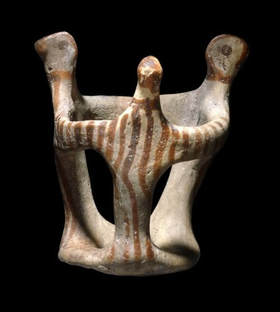
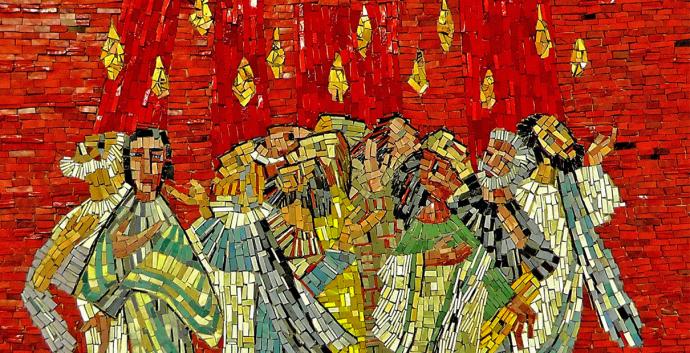
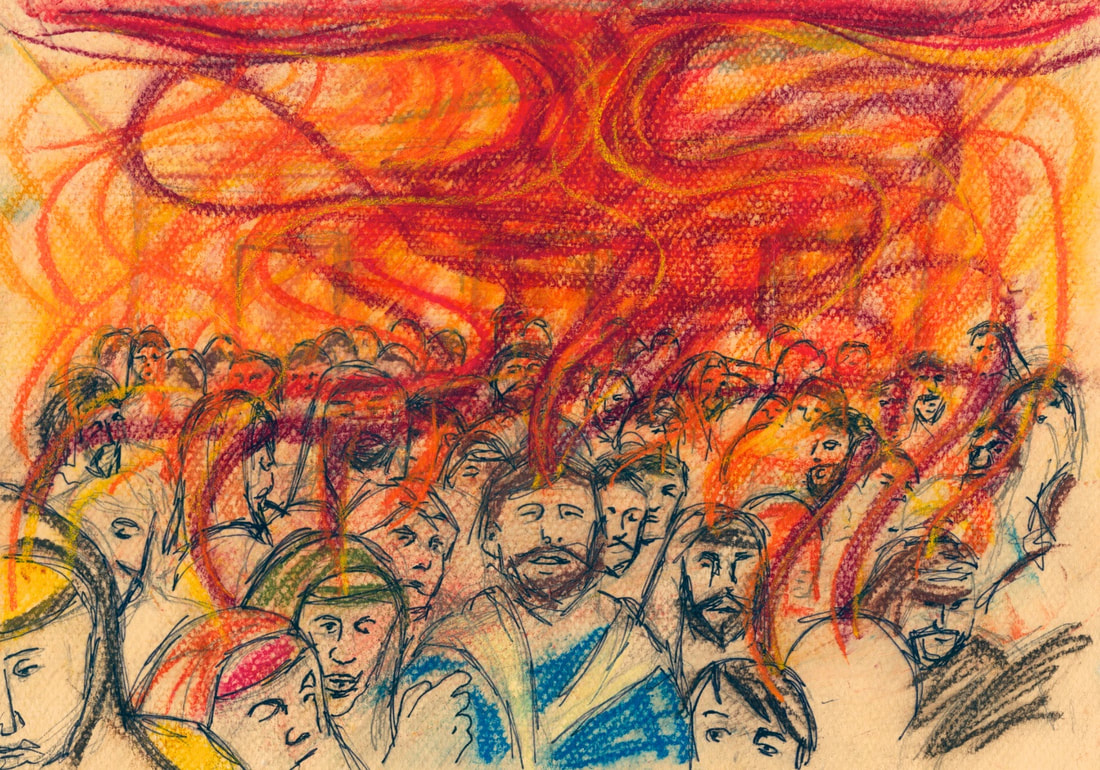
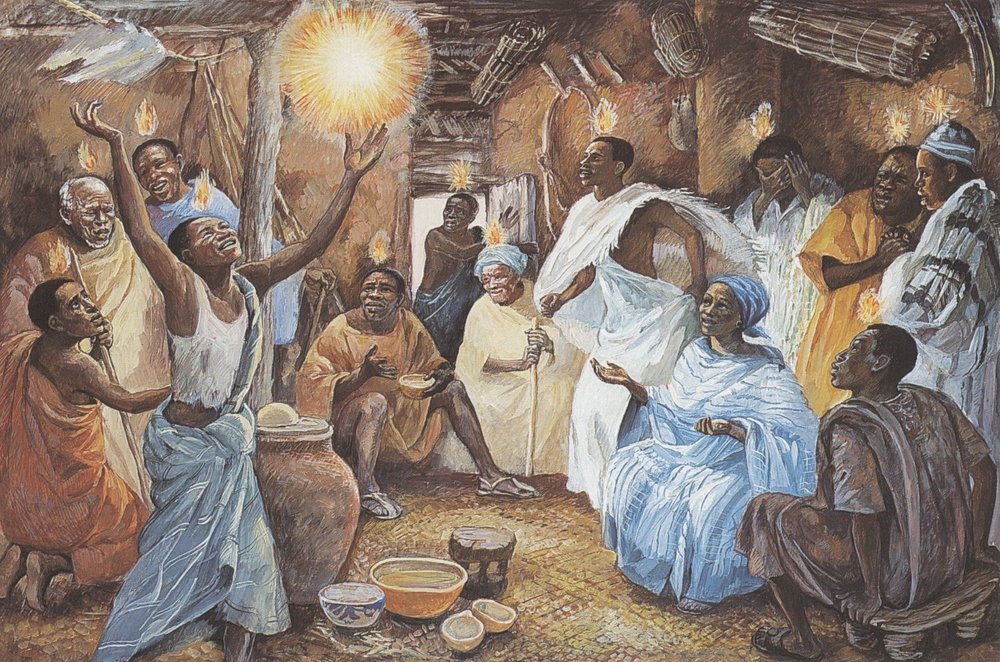

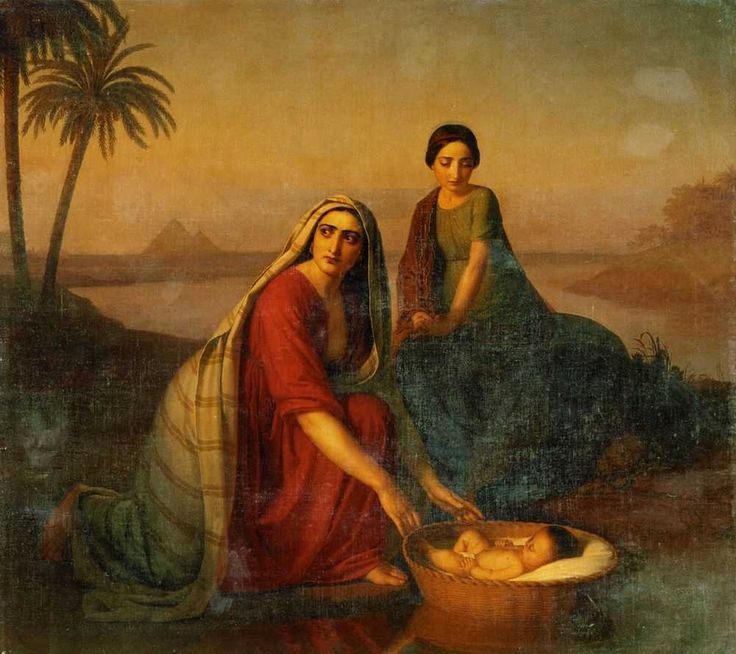

 RSS Feed
RSS Feed

